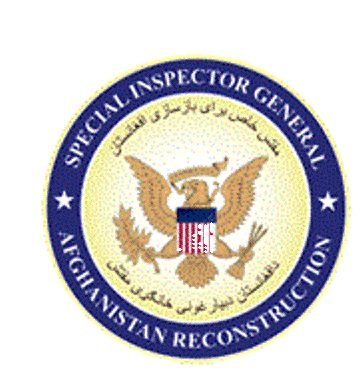KABUL (Pajhwok): A US federal watchdog on Tuesday urged policymakers to tie US assistance to any future Afghan government to its demonstrated commitment to the protection of the rights of women and girls.
In a new report released on Tuesday, Special Inspector General for Afghanistan’s Reconstruction John Sopko said: “Likewise, the US government should also consider encouraging other international donors to impose similar conditionality on future assistance.”
While stressing the US investment in the Afghan women, the SIGAR warned against forgetting the bitter lesson America learnt after its previous withdrawal from Afghanistan.
“Cutting off those whom you have previously encouraged to rise up can lead to tragedy, not only for them, but for our nation as well,” Sopko cautioned the US administration.
The report, Support for Gender Equality: Lessons from the US Experience in Afghanistan, acknowledged. Afghan women and girls had achieved significant gains in a number of areas, including health, education, political participation and access to justice, since the 2001 ouster of the Taliban regime.
However, it noted the positive story of these gains was tempered by the reality that significant barriers, such as restrictive sociocultural norms and insecurity, which continued to impede progress for Afghan women and girls.
The kind of life Afghan women would face under any government in which the Taliban exerted an influence, would be a product of the militant group’s ability — or inability– to negotiate their differences with the Afghan government and local communities, the report added.
Violence associated with the war continued to be one of the biggest challenges facing Afghan women, noted the study, which identified the loss of life, injury, disability, mental trauma as direct impacts, which spawned a range of indirect impacts, including the loss of breadwinners, desperate poverty, stigma and discrimination.
Currently, 3.5 million girls are enrolled in school; as of 2018, 70,000 women in teaching jobs — one-third of the nation’s teachers.
— A number of factors contribute to keeping many Afghan girls out of school, including insecurity, lack of female teachers, not enough schools with boundary walls and separate girls’ bathrooms, and a lack of safe drinking water. In addition, family pressure and traditional cultural beliefs, especially in rural areas, often discourage girls from attending school past puberty.
On paper, the report said, Afghanistan’s legal framework offered women and girls many protections. “In reality, neither the formal nor informal justice system offers Afghan women adequate protection of their rights.”
Women seeking redress via the formal system often face corruption or find themselves encountering unjust punishment.
As a result, many women settle disputes or violations of their rights via informal mechanisms like local mediation, but these are unregulated, raise human rights concerns, and undercut the formal justice system.
The US had provided significant support for the recruitment and retention targets set by the Afghan government for women’s participation in the security forces, but the targets had been highly unrealistic and unachievable, the report explained.
Although there had been a modest increase in the number of women police officers, females in all parts of the security forces faced threats to their personal safety and pervasive harassment and discrimination, it continued.
Despite assuming leadership roles at different levels, Afghan women face threefold threats — continued or intensified violence, the risk of peace negotiations leading to the erosion of women’s rights and a dire economic and humanitarian situation, exacerbated by the COVID-19 pandemic.
“The effort to promote women’s rights may be hampered by a growing narrative in Afghanistan that the country can either have women’s rights at the cost of peace, or peace at the cost of women’s rights.”
In his remarks, Sopko said: “Afghanistan still remains one of the most challenging places in the world to be a woman.
“I do not believe gender equality is a zero-sum game. The US can continue to play a role in shaping an outcome that preserves gains made by Afghan women and girls by advocating that Afghan women have a meaningful role in the peace negotiations and that any future agreement includes protections for them.”
mud








GET IN TOUCH
NEWSLETTER
SUGGEST A STORY
PAJHWOK MOBILE APP